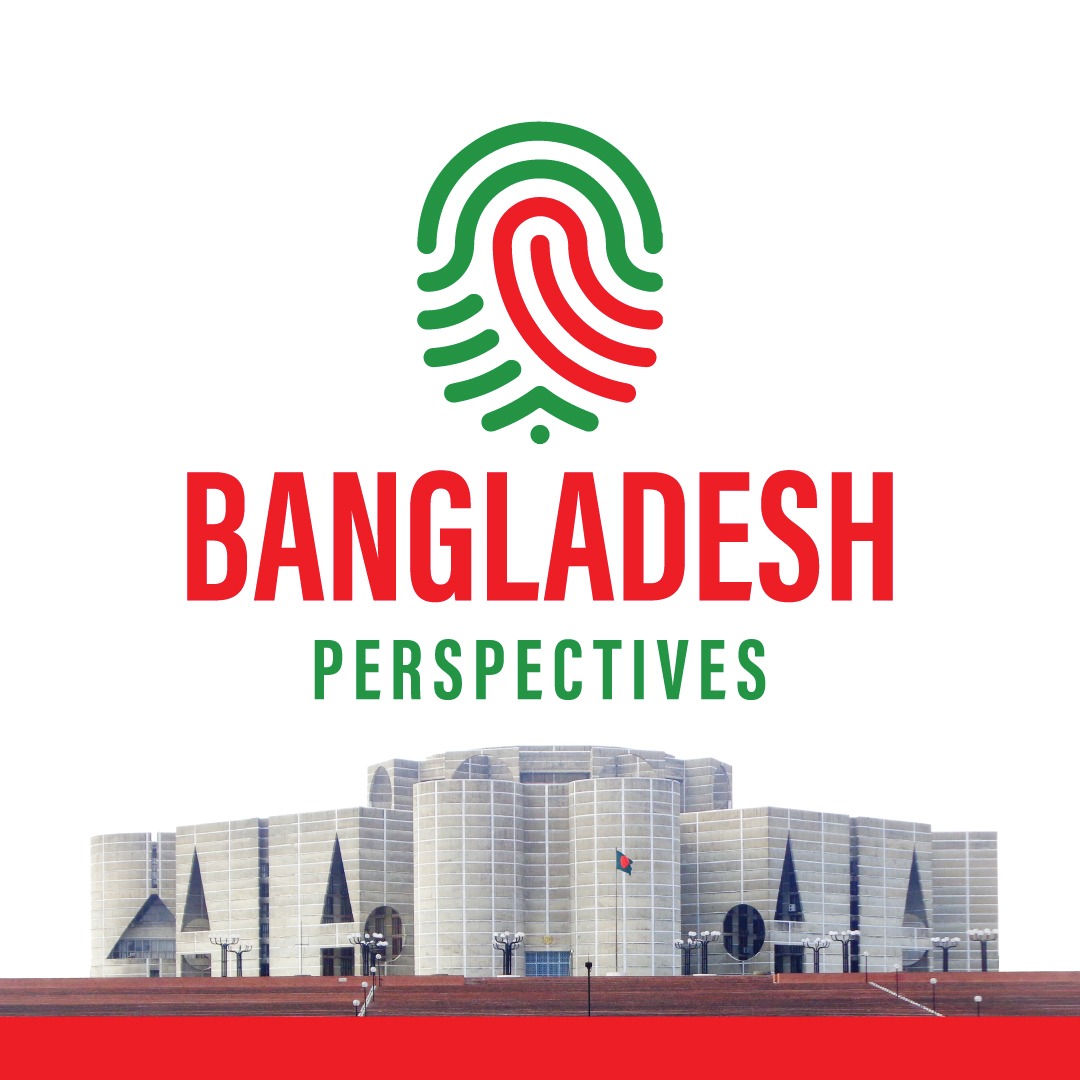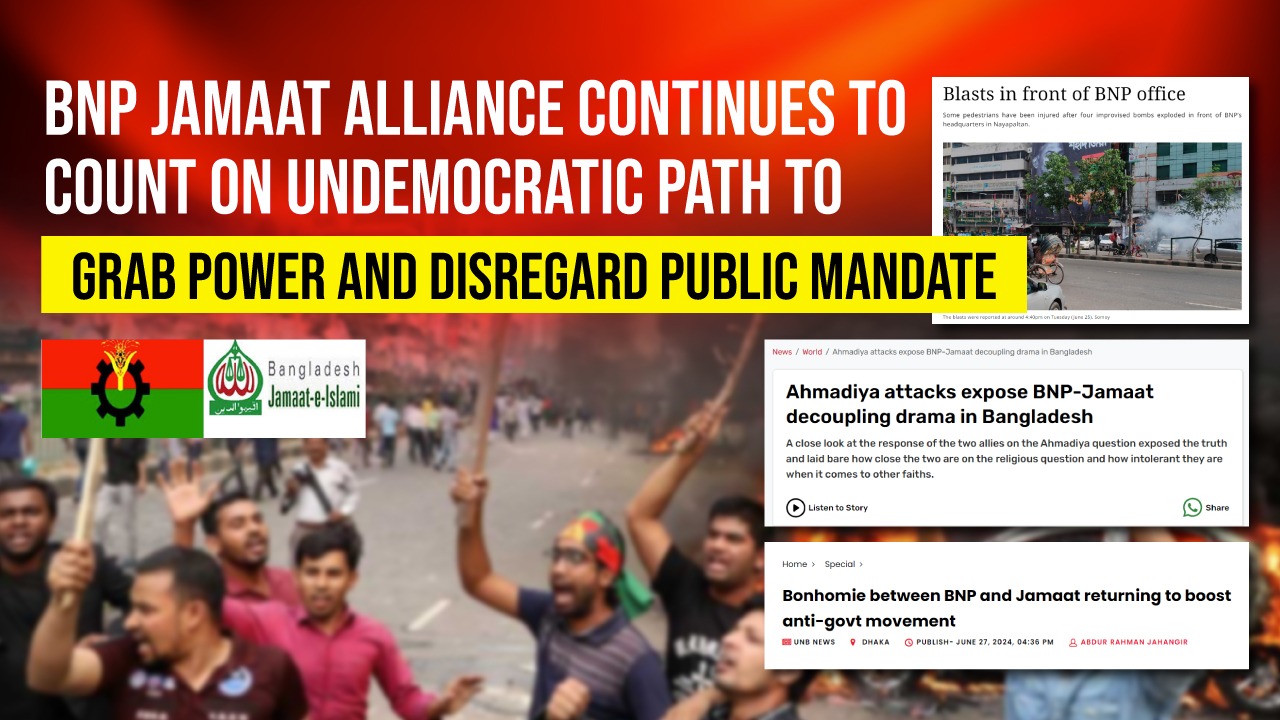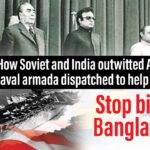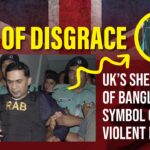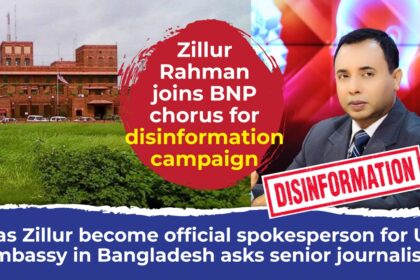Months before the last national polls, the all-weather alliance between Bangladesh Nationalist Party and Jamaat e Islami sought to grab power by thwarting polls. “Thwart polls, the fate of the country to be decided on the streets”, what had been echoed by leaders from both parties. In sync with a call for street movement, before polls, violence flared up with arson attacks on voters and the killing of cops, reportedly by the combine.
Simultaneously, another vicious and communal vision was publicly announced by Jamaat leaders as an electoral pledge: Enforcement of Sariah law and glorification of war criminals. Yet BNP embraced the communal outfit as the party’s acting chief Tarique Rahman reached out to Jamaat leaders like an iron brother.
Now months after polls, the same combine has remained hell-bent on assuming power but yet again not through a democratic exercise: by overthrowing the government, another marker of sheer disregard for public mandate.
Following the visit of the prime minister from India, leaders from Jamaat and BNP both went on public asking leaders and activists to bring down the government that had been elected by the people. On the other hand, the combine has ratcheted up anti-India slurs bringing in echoes of 1971 when Jamaat leaders who aided the Pakistan Army described freedom fights as enemies of Islam.
Persuasion of these violent policies saw a growing rift among the opposition camp particularly among left-aligned parties as they have publicly threatened to abandon the 20-party alliance.
Read: Bonhomie between BNP and Jamaat returning to boost anti-govt movement
Amid this threat of abandonment, desperate leaders from Jamaat and BNP are seeking to bring to fold left-aligned parties.
But in light of Jamaat’s record as its senior leadership perpetrated war crimes against humanity, in league with Pakistan Armed forces in 1971, the party’s reliance on communal politics led left parties to push BNP to distance itself from Jamaat.
Several leaders from left-aligned parties publicly acknowledged that BNP has been peddling lies to them about cutting ties with the Islamist party for a long time.
Read: Blasts in front of BNP office
Months leading up to polls, the combine has orchestrated a volley of violence including the killing of cops, arson attacks, crude bomb explosions and several other forms of terrorism to keep voters at bay and foil the polls.
Moreover, since being voted out of power in 2009, over two decades, BNP in collaboration with its Jamaat- and its student wing Islami Chhatra Shibir maintained a notorious political culture marked by homicidal assaults on law enforcement and innocent bystanders, premeditated vandalism and firebombing on transportation, arson attacks against minorities and other communities, and the assassination of political opponents in the name of “right to protest”.
Read: In the name of “right to protest”, BNP-Jamaat maintained notorious political culture: Joy
Throughout 2022 BNP Jamaat combine staged a decoupling drama as part of a plan to make the world believe that no more alliance exists but an attack on the Ahmediyya community in the 2023 march blew up the lead as both parties echoed a similar tune: Ahmediyya’s should be declared non-muslims.
Read: Ahmadiya attacks expose BNP-Jamaat decoupling drama in Bangladesh
The root of BNP Jamaat ties dates back to the times of its founder Gen Ziaur Rahman as the first military ruler who offered impunity and embraced Jamaat leaders mostly war criminals to get involved in politics, a legacy carried forward by his successor widow Begum Zia and now his son Tarique.
In her last rule, even Begum Zia made war criminals as ministers while the party leaders and activists directly indulged in violence including attacks on minorities and extensive street violence to stop war crimes trial back in 2013.
The emerging ties between the parties led to the rise in the latest vitriols against India as the combine stoked a disinformation campaign that “Bangladesh has fallen to Indian hands”.
This latest round of anti-India campaigns has brought echoes of 1971 just when Jamaat leaders termed freedom fighters as agents of India.
Following the assassination of the founding father Bangabandhu Sheikh Mujibur Rahman, as the first dictator cosied up to war criminals anti-India campaign emerged as a cornerstone to undermine the liberation war values.
And, the last rule of BNP-Jamaat between 2001 and 2006 saw Bangladesh turn into a haven for terror as the country has harboured Indian separatists and allowed the country to be used as a transit to smuggle out weapons in the Northeast.
